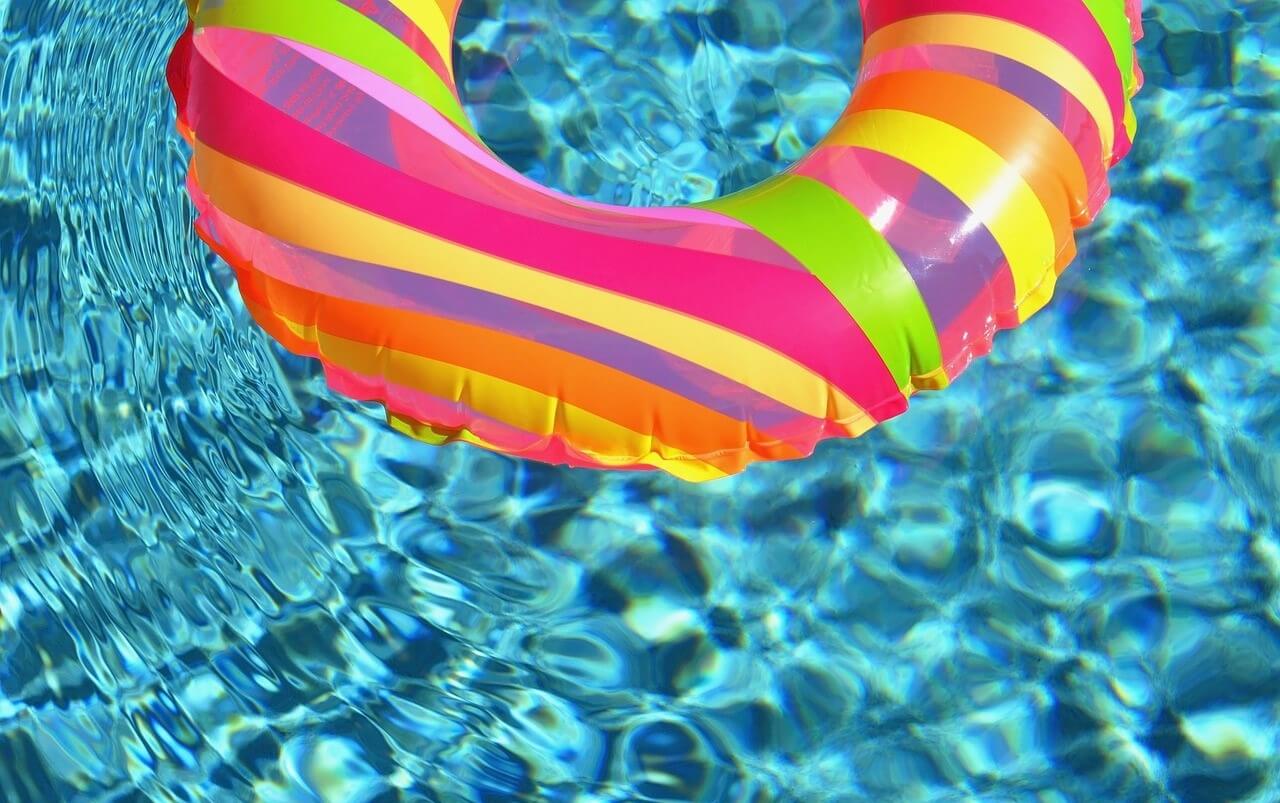A pool pump is an essential component in keeping your pool functioning. Your pool pump keeps the water in your pool circulating, which prevents stagnation. As it circulates, it passes through a filter that captures debris and keeps the water clear.
The pump also helps to evenly distribute chemicals you put into the water to keep it clean. If you have a heated pool, the pump helps to distribute the heat evenly. If you’ve added decorative or functional features to your pool, such as a water fool or spa jets, the pump also supports these features.
Although it operates in the background, and you might not give it much thought on a day-to-day basis, your pool’s pump is essential to keeping your pool operational.
The components of an above-ground pool pump include:
- Motor
- Impeller
- Housing
- Strainer basket
You can also choose from a few different types of pool pumps, including:
- Single-speed
- Dual-speed
- Variable-speed
Pool Pump Maintenance
Caring for your swimming pool pump is one of your primary responsibilities as a pool owner. If you fail to provide proper maintenance for your pump, you’ll soon be dealing with repairs and unable to enjoy your pool.
There are several things you need to do to maintain a pool pump. Depending on the task, you’ll need to do it weekly, monthly, or seasonally. For example, weekly or multiple-times-per-season tasks include:
- Cleaning the strainer basket
- Checking and cleaning the pump impeller
- Inspecting and tightening connections
Seasonally, before opening the pool up for the season, you’ll need to:
- Inspect the pump for wear and tear
- Lubricate O-rings and seals
- Prime the pump
Mid-way through the season, you’ll need to:
- Assess pump performance thus far in the season
- Adjust pump settings if needed
At the end of the season, before closing down the pool for the winter, you’ll need to:
- Drain the pump
- Store the pump for winter
Troubleshooting Pump Problems
Many of the most common issues that arise when it comes to pool pumps can be fixed with one or two simple tasks. For example:
- If your pool pump isn’t turning on, check your electrical supply. If there’s no issue with that, inspect the motor. If that’s not operating, you’ve found the problem.
- If your pump is losing prime, you must identify the air leaks. You can avoid this problem by periodically checking and replacing the O-rings.
- If your pump is making unusual noises, identify the source of the noise or at least the specific location. Often, fixing cavitation issues quiets the pump.
Getting the Most from Your Pool Pump
Pool pumps aren’t designed to last forever. However, you can extend the life of your pool pump by staying on top of a few simple tasks.
The most important thing you can do to extend the life of your pool pump is to regularly clean and inspect it. The sooner you identify potential issues, the easier it is to deal with them.
Often, you can avoid any downtime for your pool by identifying a problem before it’s full-blown and fixing it. This can also help you avoid the expense of full-blown breakdowns.
In addition to general maintenance and cleaning, keep your pool at the proper water level. Too low of a water level can burn out your pump motor.
Next, you’ll want to use a pool cover when your pool is not in use. This is one that many pool owners struggle with because it can be a pain to put on and remove the pool cover.
Many people also like the look of an uncovered pool glistening in the sun. Unfortunately, the more you leave your pool uncovered, the harder your pump has to work to keep the water clean.
There’s a happy balance of covered and uncovered for all pool owners, but the more often your pool is covered, the less work your pump will need to do to clear out debris and contaminants.
Finally, if you’re shopping for a new pool pump because your current one has broken or you want to upgrade to a new pump because you aren’t happy with the overall performance of the old one, the best thing you can do is invest in a high-quality pump.
Initially, you’ll pay more for the best quality pumps, but over time, you’ll avoid frequent repairs and the need to replace a low-quality pump sooner. A cheaper pump might actually cost you more in the long run.
When Should You Call a Pro?
Many pool pump issues can be fixed by the pool owner, but this isn’t always the case. You’ll sometimes need to contact a professional for help with your pool pump.
You should reach out to the professionals when the problem with your pump is:
- Electrical
- Causing persistent leaks
- Unidentifiable
- Beyond repair
Professional maintenance provides the tools and expertise needed to identify the root cause of the problem. The pros can also fix the issue or help you with a replacement when it is beyond repair. Calling on a pro to deal with problems beyond basic maintenance can also help you prevent long-term, costly damage to your pool pump.
If you need help maintaining your pool pump or you are in the market for a new pump, Pool Products Canada can help. We have 50 years of experience working with pool owners to keep their pools clean, clear, and fully operational. Have questions? Chat with us!

